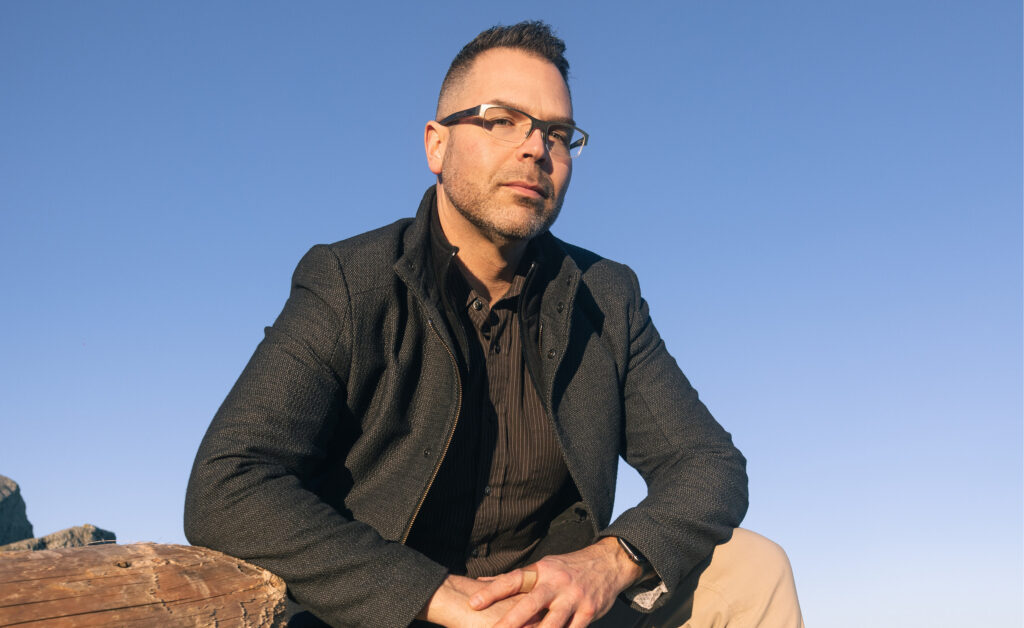Words Reuben Butterfield, mBrand
The cost of “holding it all together” is high. Men aren’t missing from the world – they’re missing from themselves.
The cost of “holding it all together” is high. Men aren’t missing from the world – they’re missing from themselves.
Men are vanishing in slow motion, and we’re not talking about it. We hear about suicide, addiction and overdose, heart disease – urgent, visible outcomes of a much quieter crisis. But we don’t often talk about something that begins long before those outcomes. The quiet exit. The slow fade of once-sparkling eyes. The moment a man stops laughing, stops listening to his gut, and stops feeling much of anything at all. He’s still alive, still going through the motions, still getting things done. But he’s no longer connected to his body, his people, his joy, or his own sense of being here.
This isn’t yet collapse. It’s erosion. Quiet, steady, and hard to name. He shows up to work. He cooks dinner, pays bills, responds to messages, and might be “doing fine” on the surface. Beneath it? Distance. Disconnect. A trail of broken promises to himself. Purpose feels abstract. The edges of his identity have gone a bit blurry. Left unnamed and unaddressed, these quiet patterns drive real damage inside and ripple out.
Many men are experts at carrying weight without flinching. Trained to perform. To protect. To endure – quietly. But that script is tired, and it rarely leaves space for full presence, for expression, or for the full range of feeling that makes a life feel lived.
Over time, the pressure to stay composed hardens into something else. Emotion is buried. Wonder fades. Life becomes something managed rather than experienced.
But something is shifting.
All around including here on the Peninsula men are starting to seek community and reach for something more nourishing, with other men. Some in structured circles. Some around campfires. Some in living rooms and Zoom calls. What they’re finding in these spaces is not therapy, and it’s not performative. It’s just connection. Real, human, nothing fancy. But for many, it’s the first time they’ve been invited to take off the armour in the presence of other men. Men’s work and men’s communities are becoming lifelines. Very necessary ones. Because a lot of men are tired of pretending they’re OK. Because the world is ready for these old ways of being to fall away.
This isn’t about reclaiming or reinforcing outdated roles. Quite the opposite: Healthy men’s work is about moving beyond those patterns and stepping into presence, integrity and connection. Because they’re craving honesty, accountability, and community in real, meaningful ways. Because there’s something powerful and life-changing about looking another man in the eyes and saying, “I see you. You’re not alone.” And something even more powerful in hearing it.
A growing number of men are saying no to the old script and yes to showing up with open hearts and minds. Yes to connection. Yes to life. They’re peeling back layers of themselves: anger, silence, pressure. Some to reinvent themselves. Some to remember who they are. Some to avoid collapse. Some simply to breathe again.
What’s emerging is something the world desperately needs. It’s presence. A kind of grounded and true strength that doesn’t need to scream for attention. A kind of openness that lets others exhale. A man who is rooted, not reactive. Alive, not just functional.
This isn’t a movement. It’s a remembering. When men begin to feel, they begin to show up again. For their kids. For their partners. For their work. For their own lives. Not by doing more, but by being here – for real, for good, for one another.
And when that happens, everything begins to shift. And the world becomes a better place, for all.




